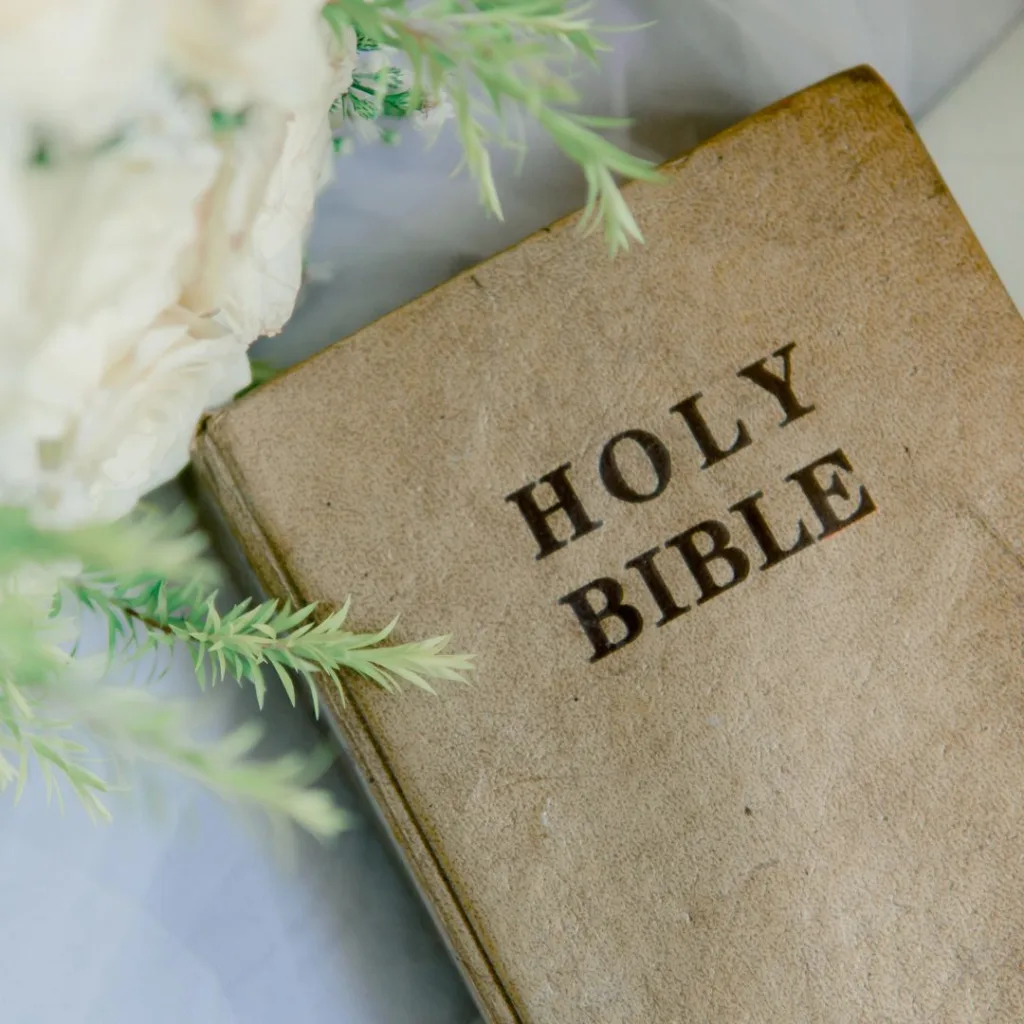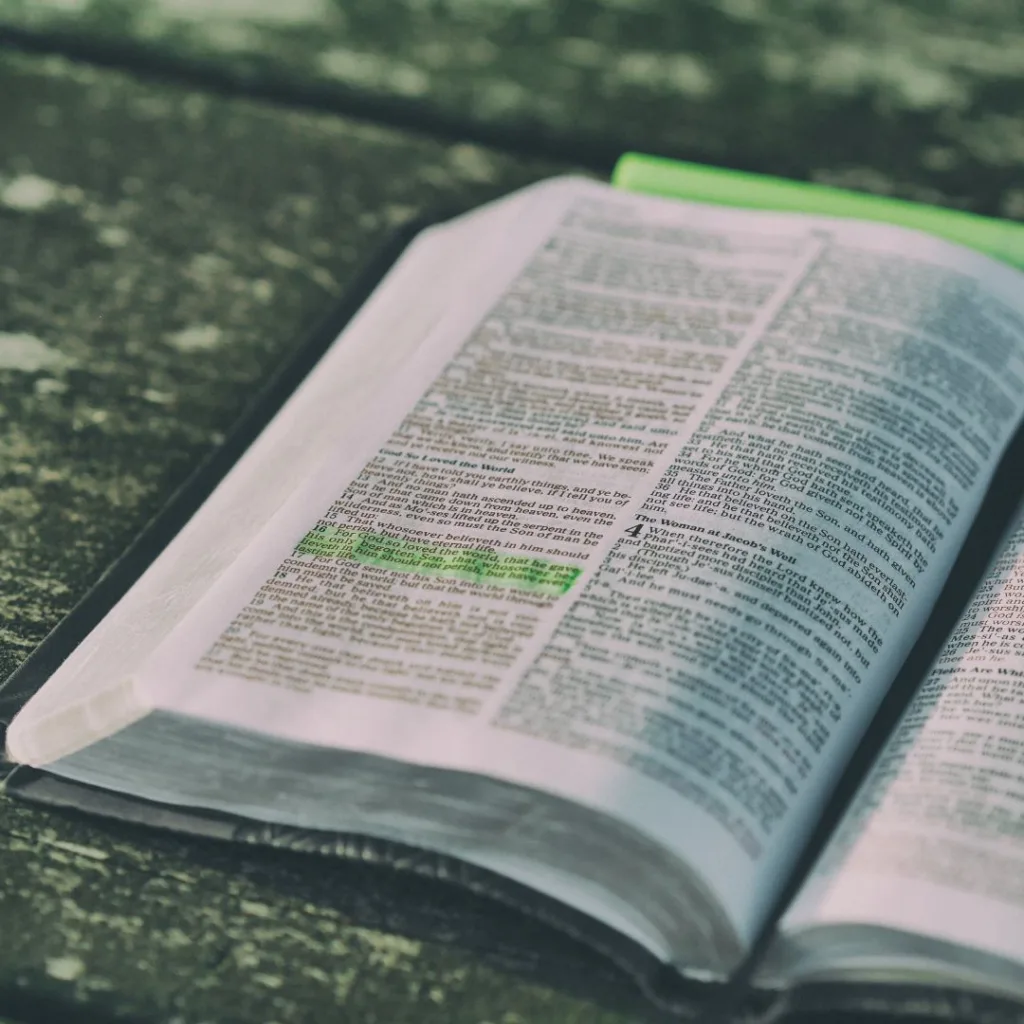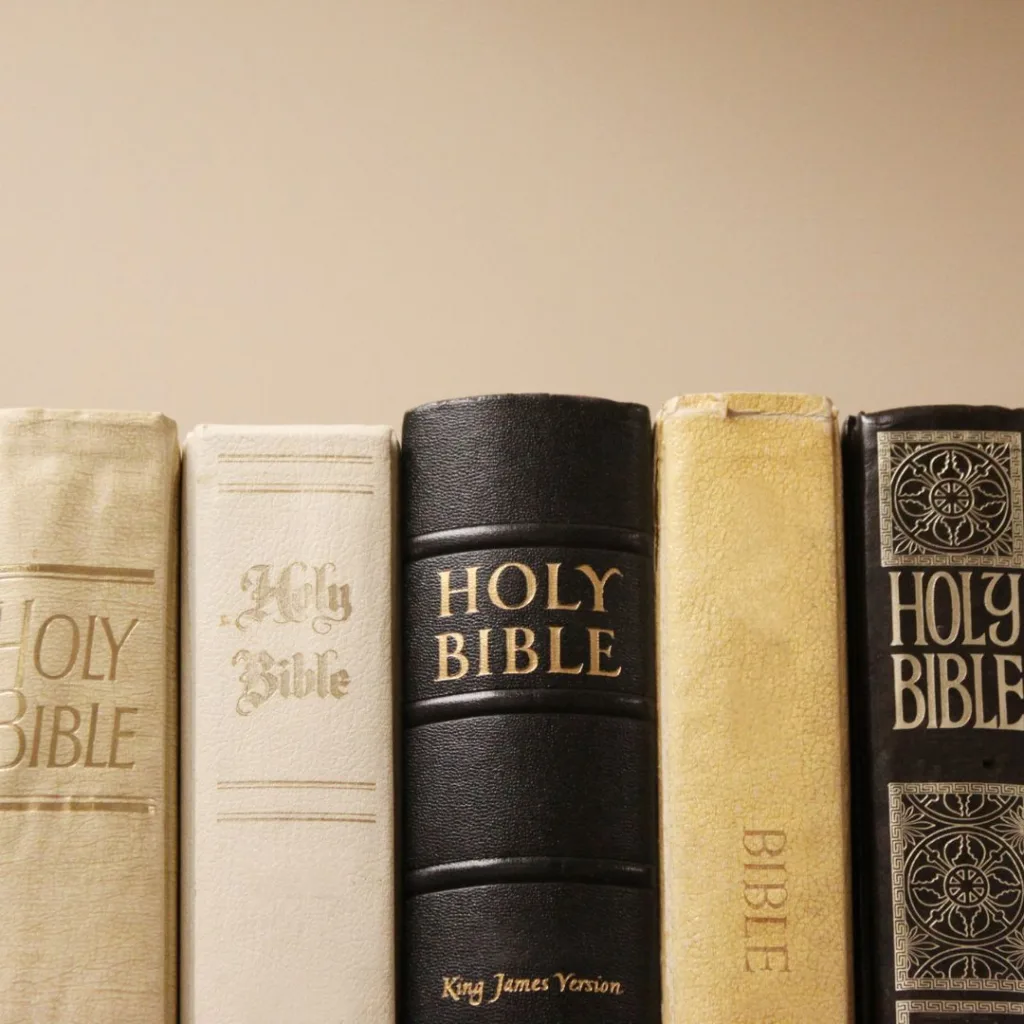Introduction
The Bible is very unique in that it’s not a single book, but a collection of books written by many different people over thousand years. How should the Bible be read? Should you start at the beginning and just read all the way through? How are you supposed to read the Bible? What is the best order to read the Bible for the first time?
Should I Read the Bible from Beginning to End?
Your goal should be to read the Bible all the way through. Normally, when you read a book, you just start on page one and read until the end. However, the Bible isn’t one book, it’s a collection of 66 different books.

The Bible is also not strictly organized in chronological order. Instead, the books are ordered by genre. This means you have to skip around a bit if you want to read the story of the Bible in the order it happened.
Many Bible reading plans have you read through the Bible from beginning to end. There’s nothing wrong with that. However, it might not be the best order to read the Bible for the first time because you won’t be reading about the events in the order they happened. That may make it difficult to grasp the story arc of Scripture.
Is It Better to Read The Bible in Chronological Order?
Whether or not you should read the Bible chronologically depends on why you are reading the Bible in the first place. If you want to learn more about Jesus, you shouldn’t read in chronological order because he’s towards the end chronologically.

If you want to get a perspective on what the Bible is all about, reading in chronological order makes a lot of sense. It will give you a great perspective on God’s work throughout history. However, you will also have to slog through some difficult, monotonous, and potentially confusing passages toward the beginning of your reading adventure. I think reading chronologically is better than reading from start to finish, but I don’t think it is the best order to read the Bible for the first time.
In What Order Should I Read the Bible?
There are many opinions on the best way to read the Bible. There is no one best order to read the Bible the first time that works for everybody. The trick is to find what works for you and what order will keep you engaged, interested, and continuing to read.

YouVersion is a Bible app that contains hundreds of Bible reading plans. I particularly like the Read through the Bible in a Year plan by Nicky Gumble. Nicky oversees the Alpha Course. He designed this reading plan for those who are new Christians or new to the Bible.
This plan contains daily readings that have you read a little of the Old Testament and a little of the New Testament every day. This can be helpful if you’re not sure which Testament to start in because you get a little bit of both.
The Bible Project also has some great resources for those looking to read through the Bible for the first time. They also have a Bible reading plan that will take you through the whole Bible in a year in loosely chronological order, working through the Old Testament and then the New. They also have you read a Psalm every day.
Additionally, they have really helpful videos on each book of the Bible and many themes and topics in the Bible that can help you better understand what you’re reading. Whether or not you choose to use this plan, I would highly suggest any reader of the Bible check out their videos.
Suggested Order for Reading the Bible for the First Time
I’ve come up with a list of the best order to read through the Bible for the first time. This list starts with some of the easiest books to read and understand and also seeks to help you understand the arc of the story of God’s people in chronological order.
I think this is the easiest order to read the Bible because you read some of the shorter books first and I’ve sprinkled them throughout this plan. This will help you build momentum. I also want to expose you to some practical books early on and regularly so you can see how the Bible applies to your life.
Additionally, I advise (no matter what order you choose to read the Bible in) that if you find any parts confusing or boring as you’re reading, skim or skip these parts and come back to them later. This will keep you from getting bogged down so that you will keep reading.
1. Mark and Luke
If you are reading through the Bible for the first time, I suggest that you start with the Gospel of Mark. Mark is the shortest of the Gospels. Luke and Mark have many of the same stories in them, but Luke tends to give more details, so his Gospel is longer. Luke also wrote the next book I suggest you read, so that makes for a smooth transition.
2. Acts
After you read the Gospels, it’s helpful to read Acts because it picks up where the Gospels end. It tells the stories of the early church.
3. James
James is a short and sweet letter written to a church. There are many such letters in the New Testament, but I’m suggesting you start with James because it’s short, practical, and easy to understand.
4. Proverbs
Keeping with the theme of practicality, I’m next suggesting the book of Proverbs. This fairly short book in the Old Testament contains pithy sayings about how to live wisely.
5. Psalms
I’m putting Psalms here on the list, but you can start reading Psalms at any point during your reading journey. Psalms is a book of poetry written over several hundred years. I would suggest that you don’t just sit down and read through the whole book all at once. Instead, it might be helpful to read one chapter a day on top of whatever other book you’re reading.
6. Genesis
From here, we’re going to start working our way through the narrative-based books of the Old Testament in chronological order.
7. Exodus/Numbers/Leviticus/Deuteronomy
These books contain both stories and law codes. Don’t be afraid to skim or skip sections that seem repetitive, irrelevant, or confusing.
8. Joshua
9. Judges
10. Ruth
11. 1 Samuel & 2 Samuel
12. 1 Kings & 2 Kings
13. Esther
14. Daniel
The first half of this book contains stories from the life of Daniel, a young man who was captured by the king of Babylon. The second half of the book is your first foray into biblical prophecy.
15. Ezra
16. Nehemiah
17. Matthew/John
From here, I’m going to suggest you head back to the New Testament for a bit. After you have all the context of the history of Israel, you may notice new things in these two Gospels. I also think the best order to read the Gospels is Mark, Luke, Matthew, and finally, John.
18. The Epistles
The Epistles are simply letters that different apostles wrote to churches (many of the churches are mentioned in the book of Acts if you want some context). They are organized by author and then by length.
Ephesians and 1 John are good places to start, but you can read them in any order you wish. Here is the complete list of Epistles in the order they appear in the Bible (minus James which we’ve already mentioned): Romans, 1 & 2 Corinthians, Galatians, Ephesians, Phillippians, Colossians, 1 & 2 Thessalonians, 1 & 2 Timothy, Titus, Philemon, Hebrews, 1 & 2 Peter; 1,2, & 3 John, and Jude.
19. Wisdom Literature
Next, read through the wisdom literature in the Bible: Ecclesiastes, Job, and Song of Solomon.
20. 1 & 2 Chronicles
1 & 2 Chronicles describe the same events as 1 & 2 Kings, but from a slightly different angle. Reading through these books will be a good reminder of what was going on during the reigns of the kings before you start reading more of the prophetic books.
21. Minor Prophets
The Minor Prophets are “minor” because they are shorter books, not because their prophecies are less important. Read them in any order you wish (though you might want to look up a list of when they were written chronologically if you would find that helpful). They are in the Bible in the following order: Hosea, Joel, Amos, Obediah, Jonah, Micah, Nahum, Habbakuk, Zephaniah, Haggai, Zachariah, and Malachi
22. Major Prophets
The last four prophetic books in the Old Testament are the Major Prophets: Isaiah, Jeremiah, Lamentation, and Ezekiel.
23. Revelation
Revelation tells the end of the story, what will happen when Jesus returns. It’s also helpful to read this book after you’ve read through the prophetic books in the Old Testament because you’ll see many similarities and similar images that may help better understand the message of the book with all its strange imagery.
FAQs
Should I Read The Bible in Chronological Order?
Reading the Bible in chronological order allows you to better grasp the history of God’s work in the world. However, it also means you will read through some longer and potentially more complex books first, which might be discouraging for some people.
Additionally, because our English Bibles are not organized in chronological order, you will want to find a reading plan or a special Bible that helps guide you in what to read and when.
Should I Read The New Testament First?
There is no wrong order in which to read the Bible. Many Christians start by reading the New Testament first because that is where all the stories about Jesus are. The New Testament can be easier to read than the Old Testament because most of the NT is either stories or fairly practical letters.
Should I Read The Old Testament First?
Again, there is no one right way to read the Bible. Depending on how your mind works and what you are interested in, you may wish to read the Old Testament first. Chronologically, you would be reading the Testaments in the order they were written, which may be helpful. It will also help inform your reading of the New Testament.
Is It Better to Read The Bible in Chronological Order?
There is a lot of value in reading the Bible in chronological order. It helps you to see the story arc of God’s work in the world from beginning to end. There is no one best way to read the Bible, but reading in chronological order can be helpful.
I might not suggest that you read through the Bible in chronological order for your first read-through, just because some readers might get discouraged or confused early on (particularly because many of the earliest books are on the longer side). However, I do think everyone should read through the Bible chronologically at some point.
Conclusion
The Bible is an amazing book. There’s no wrong way to read it. However, because of its length and complexity, for first-time readers, it doesn’t always make sense to read it straight through.
Instead, there are many helpful reading plans out there that can help you find a way that makes sense for you to read through the Bible. It doesn’t matter what order you read the books of the Bible in. What matters is that you read it and allow what you read to speak into your life.

For perhaps twenty years I have used a system put out by World Challenge, a worldwide organization that was an expansion of Teen Challenge founded by David Wilkerson back in the 50s and 60s.
The people he was dealing with were mostly young people and people who had for one reason or another wasted their lives, and his answer, starting with a fresh experience with Jesus, was to read one verse a day.
Each day of the month, for all twelve months, therefore, had a verse assigned, and the verses were chosen from all over the Bible.
There was really no system to it, but it took the reader all over the Bible, and for someone who was really searching and hungry for truth many, many times their eyes would wander to the whole story were the verse was located.
There may be some who would enjoy this approach.